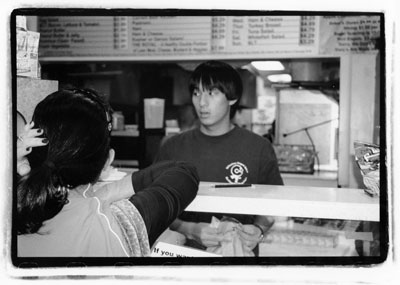All Nonfiction
- Bullying
- Books
- Academic
- Author Interviews
- Celebrity interviews
- College Articles
- College Essays
- Educator of the Year
- Heroes
- Interviews
- Memoir
- Personal Experience
- Sports
- Travel & Culture
All Opinions
- Bullying
- Current Events / Politics
- Discrimination
- Drugs / Alcohol / Smoking
- Entertainment / Celebrities
- Environment
- Love / Relationships
- Movies / Music / TV
- Pop Culture / Trends
- School / College
- Social Issues / Civics
- Spirituality / Religion
- Sports / Hobbies
All Hot Topics
- Bullying
- Community Service
- Environment
- Health
- Letters to the Editor
- Pride & Prejudice
- What Matters
- Back
Summer Guide
- Program Links
- Program Reviews
- Back
College Guide
- College Links
- College Reviews
- College Essays
- College Articles
- Back
Feedback: Numbers on a Scale
“Numbers on a Scale” is an article written by Jenny N. about her family’s pickiness over weight. She began her piece by talking about a sequence of events when she visited her aunt’s house, where one of the first comments said to her was how much weight she’d gained. Her aunt put her on a strict diet while she was there - though Jenny was allowed to eat as much as she wanted, it was only “health food” like tofu and greens. Everyone else in her family was served normal, diversified meals. Though this was close to torture, Jenny did lose weight, and she liked the look. However, as soon as Jenny got back to school, she gained those pounds back all over again.
The last few passages of the article reflect on Jenny’s Asian family’s unusual strictness. Jenny remarked that while Asian families usually push their children to get good grades, her family pushed her to lose weight, but couldn’t care less whether she put highlights in her hair or got a few B’s. She said that she “should be grateful for that in a way.” I disagree. Fat-shaming is a serious issue in our society and treating it in the way Jenny wrote this article was not proper. Jenny was clearly not seriously overweight and did not require the diet that her aunt was forcing on her. Other people who unnecessarily diet are anorexics. Anorexia is a mental disease that can lead to depression, and later other, incredibly serious consequences. Jenny approached this topic in a comparatively lighthearted way that shows she’s not in danger of becoming an anorexic. However, plenty of other children in her position would be.
In addition, Jenny’s aunt is literally forcing a diet on her. Diets need to be a personal decision, because it takes serious mental conditioning to keep one. Plus, in order to be healthy, diets should generally be recommended by a doctor. While Jenny’s diet seemed to be a healthy one, it was not approved by a medical professional and it was done unwillingly and without her permission. Jenny excuses this in her article. That’s not all right. Not only is that unsafe, it’s completely disregarding her own opinions and is therefore downright rude.
Admittedly, in the second-to-last paragraph, Jenny makes some good points. She said that “people like [her] aunt are not actually concerned about health. They are concerned about weight for superficial reasons.” This is definitely true and it’s evident throughout the article. But, in the last paragraph, Jenny seems to completely forget the one before, and treats her family’s aversion to weight gain as a positive thing. This makes the article seem wishy-washy and confusing. I would advise Jenny to take a solid stance on her opinion of her family’s weight issues and try to consider the dangers that they’ve been putting on her.

Similar Articles
JOIN THE DISCUSSION
This article has 0 comments.
